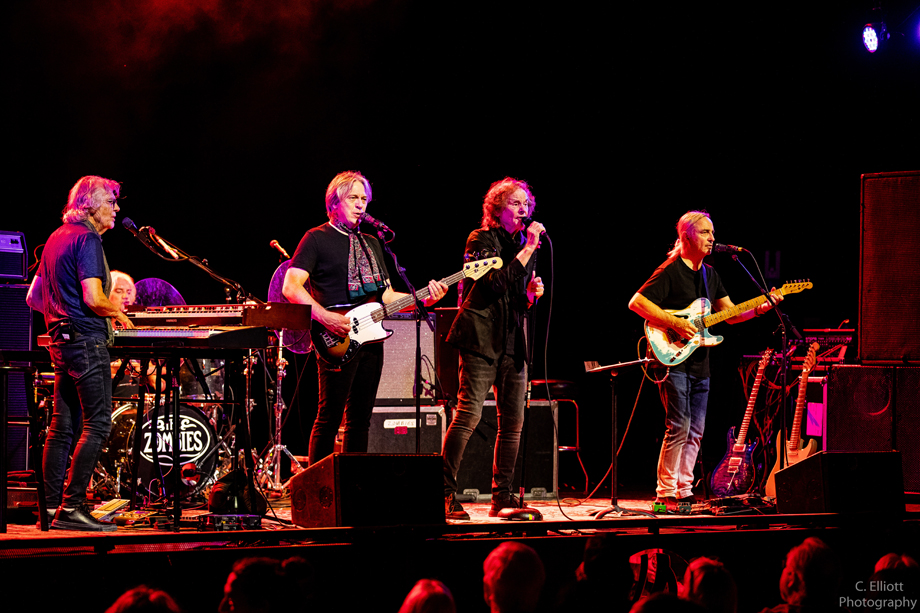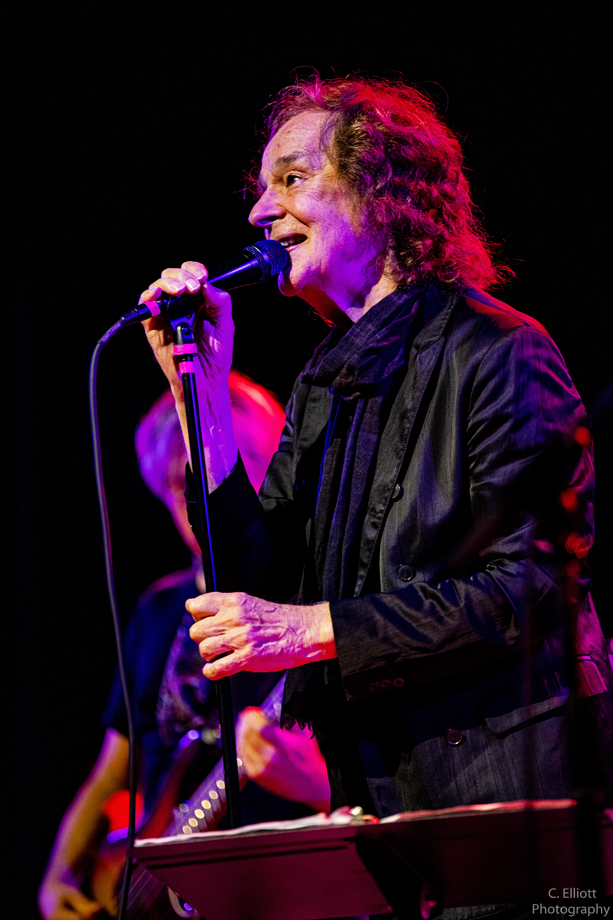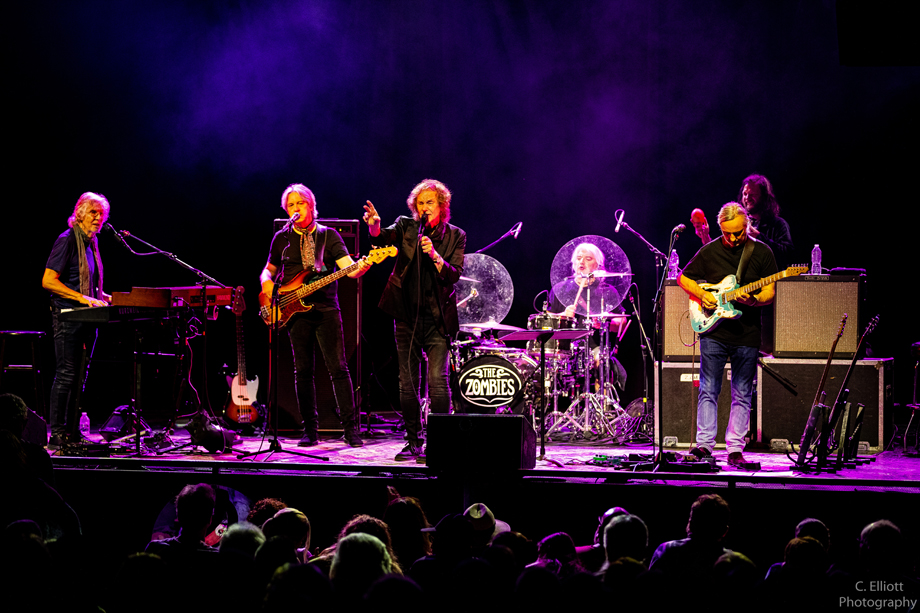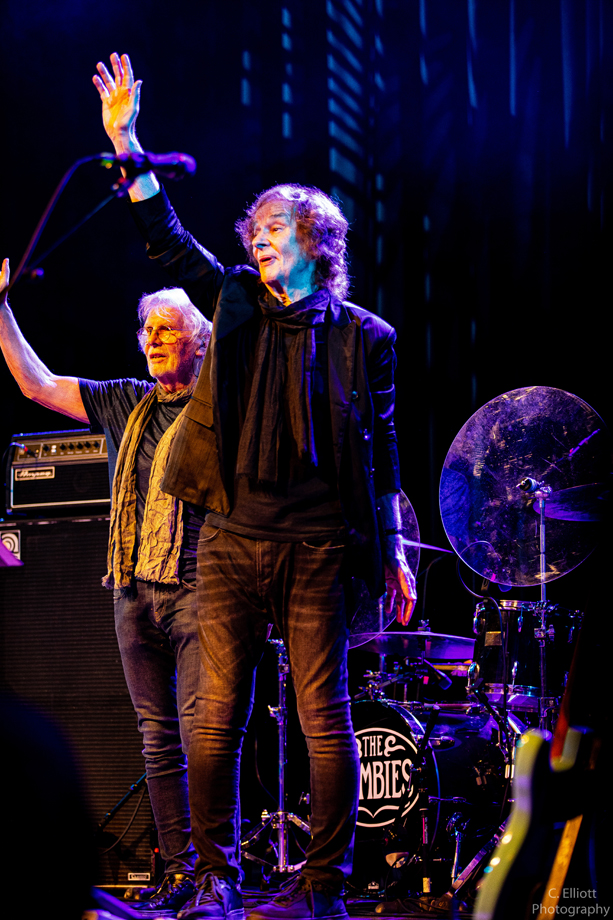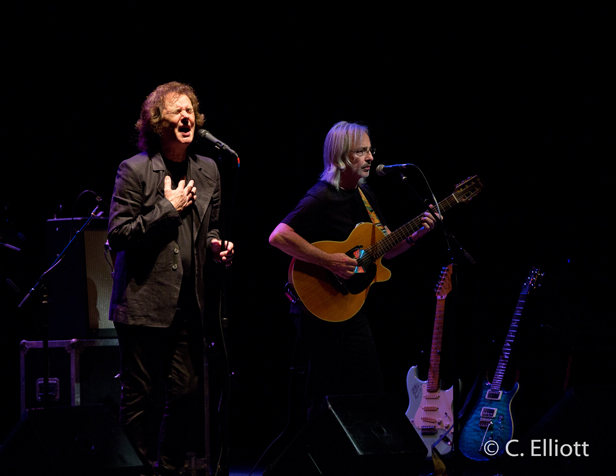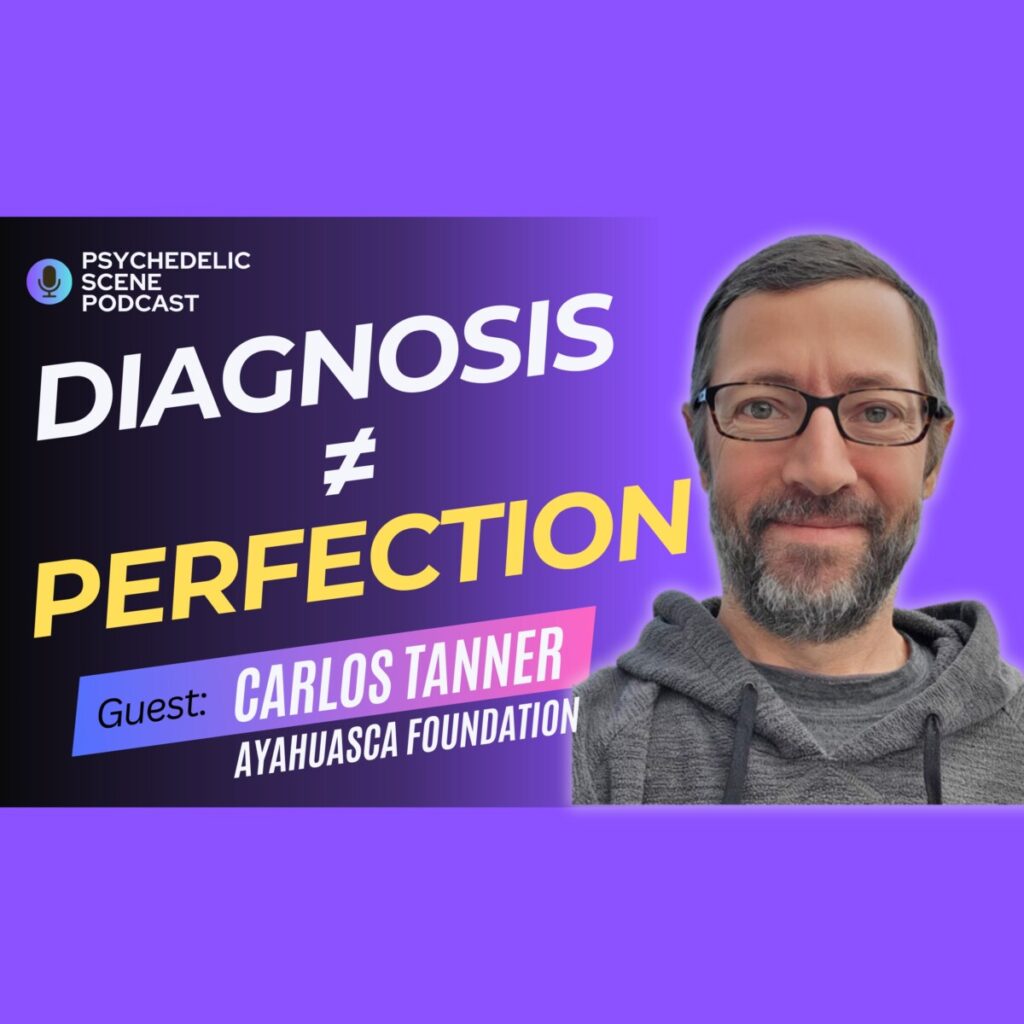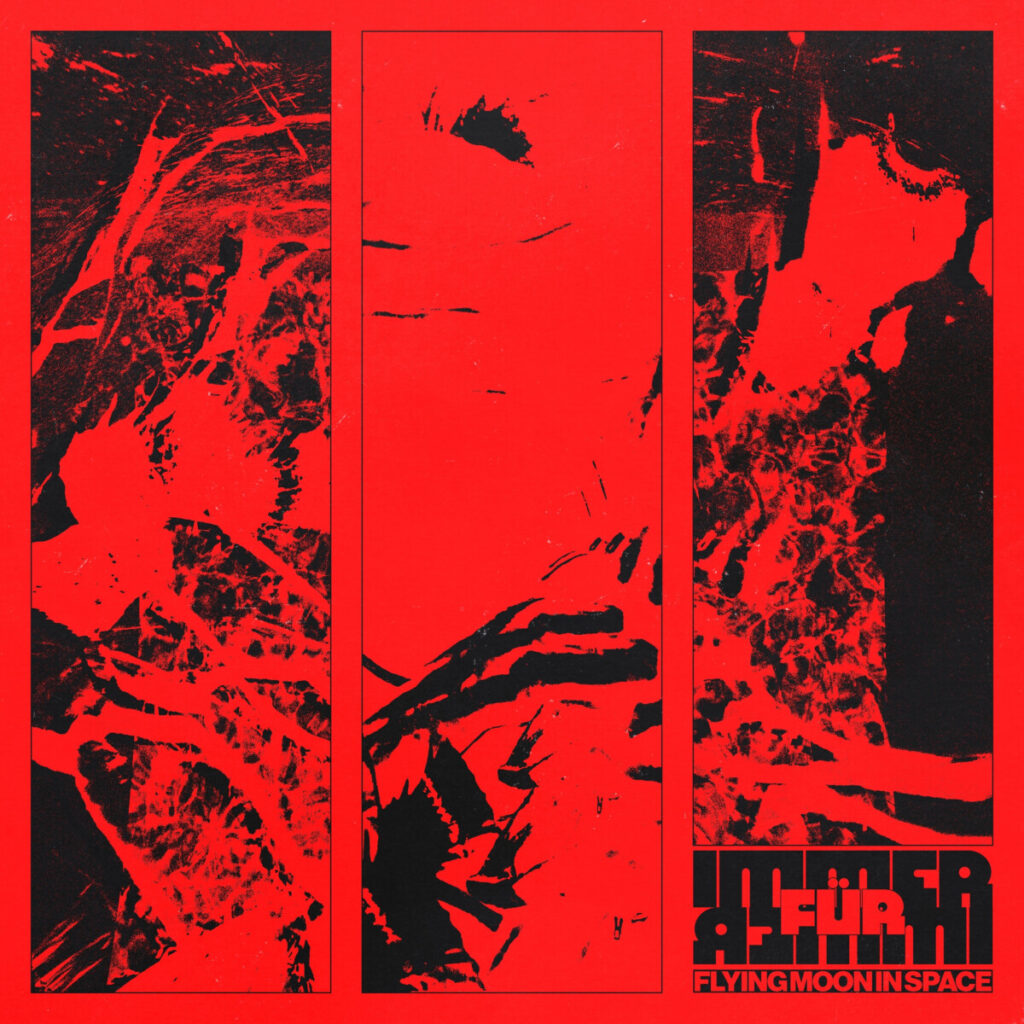Interview: Colin Blunstone of The Zombies
Interview: Colin Blunstone of The Zombies
LeValley:
This is Jason LeValley with Psychedelic Scene, and I’m here, via Zoom, with Colin Blunstone of The Zombies, who recently released an album called Different Game. And Colin, I’ve been a fan of yours and The Zombies for a long time now. You have such a distinctive and pleasant voice. It’s really such an honor to meet you.
Blunstone:
Well, thank you, Jason. That’s great. Thank you so much. Made my day. Thank you very much.
LeValley:
So let’s talk about the new album. I hear some voices on it that I don’t recognize and I know you have some newer members. Who else is singing on the album?
Blunstone:
Okay, well, obviously, I’m taking most of the lead vocals and then Rod takes a couple of lead vocals and he’s doing backup harmonies. Rod Argent. Tom Toomey is our guitarist and he sings harmonies. And Soren Koch is our new bass player. He’s Danish and he sings. He’s a very fine harmony singer as well. So there’s four of us singing harmonies and occasionally we do some quite big block harmonies, which are quite effective.
LeValley:
I’ve always loved the harmonies of The Zombies. On the cover of the album, it looks like there’s a van being towed away. What is the story behind that?
Blunstone:
Well, we were in the Arizona desert and the van caught on fire. We were on tour and the van caught on fire and obviously, we had to stop. And when we got out of the van, it was 107 degrees and it could have been quite dangerous. Actually, we were right on a very main road, but because it was just a road going through the desert, it wasn’t very wide. One of the things I was worried about were these huge trucks going past us very, very fast and very close. But on top of that, of course, there was the heat problem and we were in the middle of nowhere. In the end, we needed three vehicles to pick everyone up, but we’ve got a very good road crew and they just went about their business and got people
When we got out of the van, it was 107 degrees.
out to pick us up. But it could have been a bit dangerous. Luckily we weren’t playing that night, so we were 2 hours from anywhere. If someone had started out the minute the truck caught fire, it would have taken them 2 hours to get to us. But of course, we had to find people to come and get us.
LeValley:
You must have been on your way to Phoenix.
Blunstone:
I think we were. I can’t remember the details off the top of my head because we’ve played a lot of gigs since then and it does all start to merge, even something as dramatic as that. Quite possibly we were. But anyway, it all worked out okay in the end. As I say, it could have been a bit dangerous, but it was fine.
LeValley:
Yes. I have a friend whom I told that I’d be interviewing you and he had a question for you. So I’d like to ask if that’s all right. He says that your voice is so precise. I think that’s the word he used and he wondered what you do to prepare your voice for performance.
Blunstone:
Well, up until about probably… I can’t remember exactly, but probably when I was about 50 or something, I had no training at all. I just sang with the voice I was born with. But actually, Rod suggested that I go and see a guy called Ian Adam who was a singing coach, and he trained a lot of the West End performers who would be the equivalent of in New York, what’s it called where all the theaters are? I’ve forgotten, I blanked on it. But theater singers, where they have to sing every night very accurately, and their voices have to be strong. And his aim was never to change anybody’s voice. It was just to help you to be able to perform regularly and accurately. So he taught me a little bit about the mechanism of the singing technique. And he also gave me a set of singing exercises, which I do all the time, but particularly on the road, it’s about 35 minutes, and I do 35 minutes before sound check and 35 minutes before the show. So before we do a show, I will have been singing for at least an hour before we do the show.
Blunstone:
And I find that that really helps me. I very rarely lose my voice or get a sore throat or anything because my voice is really strong. Years ago, I did suffer a bit with wear and tear. With singing, it’s quite a lot to sing every night for 2 hours at full throttle. Our band is quite loud volume, so that’s what I’ve done. It was just a matter of weeks meeting with a singing coach who really suited what I need. You have to get the right person, someone trying to change your voice or something like that, which is not the aim at all. But it’s really helped me to have that kind of focus, where I do understand a little bit about where my voice is coming from and what I need to do to get the best out of it. And then I’ve got these exercises that I do which make my voice stronger and, hopefully, pretty accurate.
LeValley:
Okay, well, thank you for that. I wanted to go back to the 60s and ask you a question. I’ve always wondered why The Zombies didn’t really release much material between Begin Here and Odessey and Oracle. That’s 1965 to 1968. And I know that you contributed some tracks to a movie soundtrack called Bunny Lake Is Missing, but what were you guys doing during that time? It seems like the other bands of the era were, like, cranking out a lot of music, a lot of albums.
C. Elliott
Blunstone:
Well, I would say, first of all, that it was a very singles-orientated time, and albums tended to be a little bit of an afterthought on the part of record companies. They wanted singles all the time. That all changed at the end of the 60s. The album became the focus of the industry then, but for that time it was singles, and we were signed to Decca for most of that time, and we were very much under their control. If they’d asked us to make more albums, I’m sure we would have loved to have made more albums. But we made a lot of singles, often three or four, maybe even five a year, which is remembering that you’ve got to go out there and promote them. You can’t just make singles and move on to the next single. And the other thing was that we were very much the same as this incarnation of the band. We were very much a touring band, so we were on the road a lot of the time, especially the guys who were trying to write. It was very difficult for them. In 1964, when Rod wrote “She’s Not There” and Chris White wrote the B-side.
Blunstone:
I didn’t know they could write songs. I’m not sure that they did. I think Rod has said he’d written a couple of songs beforehand, but more as a sort of hobby, I think. And I don’t think Chris had written anything. So when we needed a follow-up for “She’s Not There”, they didn’t have a back catalog of songs. They were writing day by day, desperately trying to write, but at the same time we were touring all the time, so they were sort of in the back of the bus and before they went to bed at night, when they got up in the morning, they’re trying to write songs. And I think that had a bearing on how much material we actually released. It was a bit of an apprenticeship for us, really, because when we recorded “She’s Not There”, we were only 18 years old. We knew nothing about the music business. We loved playing music, and still do, but we knew nothing about the music business. And it was very much a learning process for us over those three years. In actual fact, everything is about a year earlier than it happened in the States because we had a hit here first and we started recording in ‘64.
Blunstone:
Our first record was released in July ‘64 and we finished Odessey and Oracle in ‘67, although from memory, I think, “Time of the Season”, which was taken from that album, was a hit in ‘68 in the States. And so everything was a little bit later in America, which can sometimes get a bit confusing. But those three years, we were just working constantly and it actually, at the time, seemed like a lifetime. Looking back now, I agree, it does seem like a very short period. We were an amateur band before that from ‘61. So all together we were together for seven years
It was a bit of an apprenticeship for us, really, because when we recorded “She’s Not There”, we were only 18 years old.
and I just think at the end of that time we probably all felt the band had run its course and it was time to move on. It was nothing, to be honest. I remember there was a general lack of interest in the band in 1967. It’s so strange that a year later, of course, we have a big hit with “Time of the Season” and there’s a lot of interest in the band then. But there was no band. There was no real interest from the guys in the band to reform.
Blunstone:
Everyone was committed to other projects and there was no real interest from the other guys in the band to reform the band and get out there and play again.
LeValley:
It’s so strange that there wasn’t more interest in The Zombies. You mentioned “She’s Not There” and then “Tell Her No”, which I guess wasn’t really that big of a hit.
Blunstone:
Well, it was number six. It depends on how you gauge hits. I’d love to have a number six record in the charts in America right now, but it was quite a big hit. And then we had three or four others that were top hundred or top 50 even hits, but they’ve kind of got forgotten. But the thing with The Zombies was we always had a hit somewhere. I think one of the traps we fell into was we concentrated too much on the UK market and the American market, but we had hits in France, we had hits in the rest of Europe, we had hits in Scandinavia, and we had hits in the Far East. But it was so hard to get any information in those days. There was no internet and often we were told years later that we’d had a hit. It’s quite bizarre. A great example was in 1967 we went to the Philippines and we thought we were playing in the bar of a hotel. It seemed like it would be like a nice holiday to go to a tropical island and play, I imagined, in the bar of a hotel. We opened to 28,000 people and we had no hint of an idea that that would happen.
Blunstone:
When we got there, I think we had sort of five records in the top ten and no one had told us. It was a wonderful but huge surprise. And we played a residency of ten days in the Araneta Coliseum. And those like the 28,000, we played a matinee on the Saturday of 15,000, and Saturday night we played to 32,000 and I don’t think it ever quite got up there again. But for ten days we played to these huge audiences. It was an arena and no one had given us a hint that that’s what we were to expect. And so hindsight is such a wonderful thing, isn’t it, I think now, why didn’t we ever go back to the Philippines? We’d got a wonderful audience there, a very enthusiastic, loyal audience. But I think we were concentrating too much on the UK and America, and there was no interest in the UK at all, and even “Time of the Season” later on when it was a hit. It’s never been a hit in the UK, although it’s been in a lot of commercials and a lot of films. So people know it in this country. And I think subconsciously, they think when we played a concert, they think it was a hit here because it’s been in so many different commercials and films, but it never charted.
Blunstone:
I think it’s been released five times and it’s never charted.
LeValley:
It’s so odd. I mean, it’s such a great and classic song. It’s one that I can play for a 20-year-old. And they’ll go, “Yeah, I know that song”.
C. Elliott
Blunstone:
I know. It’s very strange, isn’t it? I think it was a hit all around the world, everywhere except the UK. But nothing about The Zombies is simple. It’s a very strange story. And even this second incarnation, Rod and I got together quite by chance in 1999, because I was touring and I had a keyboard player who was a lovely guy, a great player, but he just didn’t turn up. And he had this Achilles heel that if anyone asked him to play a concert where they wanted him to play his songs, this is the key. If they wanted him to play his songs, he was off like a rocket. So I was turning up at concerts without a keyboard player because I didn’t think Rod would ever want to play live again. He was a very successful record producer and I just phoned him on the off-chance and said, “I’ve got six dates left on this tour, would you think about doing them?” He said– I remember I was really pleasantly surprised. He said, “Yeah, no, I’ll help you out, I’ll do them, but I only want to do the six dates. I don’t want to get back into being on the road again.”
Blunstone:
But he loved it so much that those six dates have grown into 24 years. That was 1999, and here we are in 2023. It was just a chance. I really didn’t think Rod I wanted to get back on the road. And I don’t think he thought he wanted to get back on the road either, but he loved it once we started doing it, and then we started we were just playing in little rooms at the back of pubs to start with. And then by continually touring, we’ve built it up to a point now where we can play all around the world at a really nice level, where we’re playing big theaters, we’re playing to 2000, 3000 people a night most places. It’s worked really well.
LeValley:
Well, you referenced Chris White, the original basis for the band, and he is such an important part of The Zombies legacy, but it doesn’t seem like he’s been involved in the resurgence. And I was wondering if you know what the reason for his lack of participation is.
Blunstone:
Well, in 1967, when the band finished, Chris decided he didn’t want to play bass anymore. He wanted to write and he wanted to be a producer. And Rod Argent and Chris White put a production company together and they produced Argent, Rod’s next band. And Chris wrote for that band a lot of songs and co-produced it, but he didn’t play. And then also they produced my first solo album as well, which was strange enough, it was successful here and not in America, the exact opposite of The Zombies. So Chris had made that conscious decision not to play as a professional musician any more. And more recently, we have toured the Odessey and Oracle album live. And Chris White and Hugh have
It seemed like it would be like a nice holiday to go to a tropical island and play, I imagined, in the bar of a hotel. We opened to 28,000 people and we had no hint of an idea that that would happen.
come out of retirement and they played the album and played very well, as well. And I think Chris did incredibly well because I think the first Odessey and Oracle show was in 2008. It was the 40th anniversary of Odessey and Oracle. And Chris hadn’t played since 1967 and hadn’t played at all. And he was note perfect. So when we’ve done Odessey and Oracle, Chris and Hugh, Hugh Grundy, our drummer, have both played with us.
Blunstone:
But neither of them chose to go on playing as professional musicians. It was their choice. They didn’t want to do it. Neither did Paul Atkinson, who sadly passed away in the early 2000s. But he became a very, very successful record company executive. Really, really impressive success he had working with the very top people. People have different ambitions. Not everyone wants to be a professional musician. There are lots of other…
LeValley:
Seems like he’s missing out, but you’re right. People have different priorities.
Blunstone:
Yes. He just felt he didn’t want to do it anymore. If he’d have been playing, he could have been in this incarnation of the band. Of course, it wasn’t that we wanted to exclude them, but they weren’t playing.
LeValley:
Have you managed…?
Blunstone:
I just say one other thing. It was never our intention to reform The Zombies. When we got together in 1999, we toured as Colin Blunstone and Rod Argent. And we didn’t understand that there was a huge interest in The Zombies. As we traveled more and more people asked us to play Zombie tunes till we got to about…It was like 2006, 2007. It was six or seven years after we’d started playing together again. We realized we were playing a Zombie set. And then we sat down with Hugh and Chris White and said, “Look, we’re playing a Zombies set to a Zombies audience. Maybe it would be more honest to actually call it The Zombies. It was never our intention, but we talked it through and at that point then we started using the name Zombies. The Zombies.
LeValley:
Well, I think when I saw you ten years ago, I think you were being billed as Colin Blunstone and Rod Argent of The Zombies.
C. Elliott
Blunstone:
It could well be. We’ve had two or three different versions of this. I think we also had The Zombies featuring Colin Blunstone and Rod Argent at one time. And then I remember having an interview, a conversation with Rod about an album sleeve three or four albums back, and he was talking about how he visualized the sleeve and he said, “And The Zombies at the top”. And I thought, “What did he just say? And it was quite a big moment, really, because he’d been very much against using the name, The Zombies. And really, that was probably the start of us using the name. I don’t know. It was very important to us because we didn’t want to give people the impression that we were the original Zombies from the 60s. But as I said, there came a point when we were playing all Zombies material and we wanted to let people know that that’s what we were doing.
LeValley:
You were playing more than just The Zombies material. If I recall correctly, you played a song that you sang for the Alan Parsons Project that I didn’t recognize, but my then-girlfriend, who’s from Chile, said that that was a big hit there.
Blunstone:
Around the world that has been a big hit. There are countries in Europe where that would be the biggest song that we play, and we don’t always play it. We’re not playing it at the moment, for instance. But, yeah, we do sometimes do that. And we’ve done a couple of Argent songs. We usually play “Hold Your Head Up”. And we used to play “God Gave Rock and Roll to You” as well. But we haven’t played it recently. At the moment, we’re playing “Say You Don’t Mind”, which was a big hit for me in the UK. I don’t think it was a hit anywhere else, but it was a big hit here. And we’re playing, “Say You Don’t Mind”. So we do lighten things up with…We’ve both made so many records, so we’ve got a vast repertoire that we can call on to just break the show up with something a bit new.
LeValley:
And I think that’s great. So have you been a professional singer your entire adult life, or was there ever like a down period where you had to take another job?
Blunstone:
Well, actually, there were. There have been two periods for quite short. When I left school, the band was still an amateur band for all of us when we left school, except Paul Atkinson. He went straight from school into a professional band. He was a year younger than us and I worked in an office in London. I had no idea what I was going to do after school. I just took the first job I was offered and then when the band finished, exactly the same thing happened. I didn’t have a plan B and I’ve got to be honest, there was very little interest in The Zombies in the UK. As
I went to a job agency and the first job I was offered was in an office and I worked there for the best part of a year, and then “Time of the Season” was a hit and the phone started ringing.
I’ve said before, and as a corollary of that. There was very little interest in me as well. And so I was stuck sitting around at home for probably a couple of months and I thought, well, to be absolutely honest, my father had a word with me. I was still quite young, my father had a word with me and he said, you know, you can’t just sit around here doing nothing, you’ve got to get a job. And so I can’t remember if I just looked in newspapers or went to a job.
Blunstone:
I think I went to a job agency and the first job I was offered was again in an office and I worked there for the best part of a year, I think. And then “Time of the Season” was a hit and the phone started ringing and I started getting offers to sing professionally again and I was very happy to get back into the music business. Sure.
LeValley:
I interviewed Rod last year, right? And he said that the members of The Zombies never dabbled in psychedelic drugs. Is that your recollection as well?
Blunstone:
Well, it is true, actually. Before we did this interview, I thought I just wanted to look up what psychedelic really means. I mean, it’s a word, you know, we all use from time to time. And I thought, do I really know what it means? And with regard to music, the explanation I had was it was music that in some way was influenced by psychedelic drugs. And I have to say we were, I think, possibly because we were very young and also it was just a little bit before drugs started happening. I think if we’d still been playing two or three years later, it might have been a different story. But when The Zombies first were together, the original Zombies were together, I never saw any drugs, and certainly none of the band took any. But remember, we finished in ‘67, I think. It was all just starting then. I’m sure people were smoking joints and things like that, but I never saw anyone in our band do that.
LeValley:
Well, Odessey and Oracle is considered a psychedelic record.
Blunstone:
I know. I hope I’m not disappointing too many people here.
LeValley:
No, not at all.
Blunstone:
It’s interesting, I’m sort of feeling a bit guilty. Maybe I should have come up with a different story. But no one in the band were.
LeValley:
Were you trying to make a psychedelic record with that?
C. Elliott
Blunstone:
No, we’ve never done that sort of thing. I think what perhaps leads people astray is the album sleeve. It looks quite psychedelic, I think, and it’s a painting. It was painted by someone called Terry Quirk, who actually shared a flat with Rod Argent. And Chris White and I went to school with him, so it’s someone we’ve known for years and that was his idea of the sleeve and of course, the famous misspelling. And I always say I blame it on our school because my spelling is not very good and I went to the same school as him and he spelled “Odyssey” incorrectly. So as I say, I blame the school. But yeah, I know it is considered a psychedelic album by some people, but with us, normally what we do is, and it’s the same with the band now, and even with my solo albums, I try to get the best ten songs together that I can. Same with The Zombies. We get the best ten songs together that we can and we record them to the best of our ability. We’ve never tried to appeal to a genre. We’ve never done that ever. We never had a disco phase.
LeValley:
Good!
Blunstone:
We never had a punk phase and we really actually never had a psychedelic phase either. But I think it’s just an album that was successful during a psychedelic period.
LeValley:
It fits in seamlessly with the psychedelic era. I think that’s the thing.
Blunstone:
Yeah, but you know, the thing is that it was actually recorded a little bit before the time that people became aware of it. It was recorded in the summer of ‘67.
LeValley:
The Summer of Love.
Blunstone:
Was that the Summer of Love?
LeValley:
That was the Summer of Love. Yes.
Blunstone:
I was too busy recording in the studio to experience too much of the Summer of Love. Or maybe I have no excuse for not participating in the psychedelic era. I plead guilty but insane.
I’m sure people were smoking joints and things like that, but I never saw anyone in our band do that.
LeValley:
All right. A few years ago you were inducted into the Rock and Roll Hall of Fame.
Blunstone:
Yeah.
LeValley:
Congratulations on that.
Blunstone:
Thank you very much.
LeValley:
How did you feel about it?
Blunstone:
I thought it was a great honor. I was absolutely thrilled that our peers should nominate us for the Rock and Roll Hall of Fame and then our fans should support us with over 300,000 votes. There are two separate votes. First of all, you have to be nominated by the people that are in charge of the Rock and Roll Hall of Fame. And then the fans vote. We got well over 300,000 votes and then our peers, the members of the Rock and Roll Hall of Fame, vote as well. So to be inducted into the Rock and Roll Hall of Fame, you have to have been noticed and appreciated by your peers, I think. I think that’s absolutely fabulous. I really do. So I was thrilled and the night that we were inducted is engraved on my psyche forever. It was fantastic. You know Stevie Nicks, Janet Jackson, and Def Leppard. Roxy Music, Radiohead, The Cure. Fantastic artists. And we were inducted with them. It was wonderful. And we all had our families there as well, which made it extra special. 17,000 people in the Barclays Center in Brooklyn, and it was televised, so it was quite an occasion.
Blunstone:
I was absolutely thrilled and humbled, but to be part of it, great.
C. Elliott
LeValley:
I don’t think you’ve written songs for The Zombies, but I do know that you write some songs. Do you play an instrument also? I don’t think I’ve ever seen you play one.
Blunstone:
I play guitar. I was the original rhythm guitarist in The Zombies. It only lasted for a very short time. Well, actually I still played guitar, but on our first rehearsal I was the rhythm guitarist and Rod was the lead singer and we changed around and I did keep playing for a time and then, eventually, I just became the lead singer. I didn’t play, but I do write, and I’ve written one of the songs on the new album and I very often get sort of one track on The Zombies, but I write more for my solo stuff. So the last track on Different Game I wrote, “The Sun Will Rise Again”.
LeValley:
Oh, great. How does touring in your 70s compare to touring in your 20s?
Blunstone:
Well, it’s a lot more controlled in your seventies, I think. Obviously, you have to be a bit more serious about it when you’re in your 20s. It’s a wonderful adventure, you’re traveling around the world with your pals, singing the music you love. It’s a very exciting adventure, but of course, you can stay up all night and you can do crazy things and it’s all fine. When you get into your seventies, you’ve got to think things through a little bit and you’ve got to concentrate on getting plenty of sleep, eating a sensible diet, and probably, most importantly, is to stay hydrated. You’ve got to drink lots of water, especially as a singer. But if you do those things, if you have a sensible diet, drink plenty of water, and make sure you get plenty of sleep, it’s fine, but it might not sound very exciting. But there’s excitement enough on the road, even if you look after yourself. But you do have to do that. I can’t imagine anybody living on the road in their 70s in the same way as they would have done in their twenties. You just have to calm down a bit and be a bit more professional about it.
LeValley:
What would you like to accomplish in your remaining years?
Blunstone:
Well, firstly I’d like to keep playing, writing, and performing for as long as I’m physically able. I’ve talked to Rod a lot about this. We know that we can’t do this forever because it is physically demanding, especially touring. And I think we’ve already decided that we’re going to try and tour in shorter tours. We still want to tour, but we’re often doing six, seven, and eight weeks away from home and we’d like to cut that back to perhaps four weeks now. So I’d like to keep working as long as I possibly can. I would really like to write more if I can. This is a part of my career that I’d really like to concentrate on if I can. But writing is such a mercurial business. Where do they come from? Songs for me. I’ve never really worked out where they come from. It’s just you have to just keep concentrating on the journey if you like. You have to keep trying to write. Always hoping that a song is going to arrive. I’m on the journey at the moment. I’ve got a few ideas, which is really exciting because I haven’t had any ideas for some time.
Blunstone:
So I’m hoping that they will crystallize and become finished songs. So that is an area I’d really like to expand if I can. But I’m really excited that we’ve managed to stay a touring band for this long. Rod and I are going to be 78. We’re only ten days apart. We’re going to be 78 later this month. And I’m really thrilled that we’ve been able to keep going. A lot of it’s luck. It’s down to your health, really. So I think we’ve been very fortunate to be able to tour this long, and long may it last.
LeValley:
I hope it does. Colin, thank you so much for the time. It’s just been an absolute pleasure to talk to you.
Blunstone:
Oh, thank you. And earlier on I was stumbling over a word I remember. It was Broadway. My singing coach was working with people who played over here we call it the West End, all the musicals, and in New York they would call it Broadway. And he worked with a lot of people in those kinds of shows, and he could use that experience to help people like me who are in a band. And I stumbled over the word Broadway. Just got word blindness. I apologize for that.
LeValley:
No worries.
Blunstone:
Well, Jason, it’s been great talking to you, and thank you so much for this interview. I’ve really enjoyed it.
LeValley:
Okay, thank you. Take care.
Blunstone:
Cheers. Bye bye.
Related: Rod Argent Interview
Gallery
Recent Articles
Can Molly Mend Your Marriage?
•
February 16, 2026
Immer Für Immer by Flying Moon in Space–Album Review
•
February 13, 2026

Loading...
